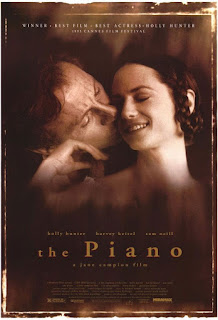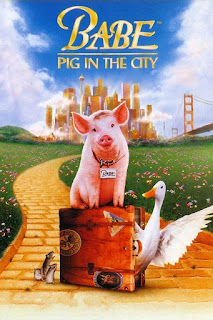October 10th: DEAD OF NIGHT (various, 1945)
A man visits a country house in England, where a collection of strange guests tell a series of supernatural stories.
Ealing Studios is a production company based in London that has existed in one form or another since the early 1900s. It hit its stride during World War II, where under the leadership of producer Michael Balcon a wider range of directors were brought in, leading to notable works like pro-British propaganda film Went the Day Well?
Unlike their American counterpart, the British film industry did not have a history of making horror or overtly supernatural films, but perhaps due to the trauma of the war, an attempt was made to explore this psychological territory. The idea was hit upon to assemble some of Ealing's talented and up-and-coming directors to work on individual stories contributed from various sources, from in-house writers to known figures like H.G. Wells.
An additional conceit to the anthology structure was the creation of a framing or "linking" story around the others, which serves as far more than a palate cleanser between the chapters and becomes its own memorable piece, as well as giving the whole film a meta-narrative. This approach would go on to influence other anthology productions for generations of filmmakers.
The directors chosen for the project were Alberto Calvalcanti (Went the Day Well?), a Brazilian artist who started in interior design before working in French cinema before coming to England; the versatile Basil Dearden (The League of Gentlemen), Robert Hamer (Kind Hearts and Coronets); and editor-turned-director Charles Crichton (The Lavender Hill Mob, A Fish Called Wanda).
The cast includes many veterans of Ealing films, as well as Michael Redgrave (father of Vanessa Redgrave), Mervyn Johns (A Christmas Carol), African-American stage and screen star Elisabeth Welch, and Basil Radford and Naunton Wayne, a duo who play characters very similar to the ones they portrayed in Alfred Hitchcock's The Lady Vanishes.
Dead of Night was a box office success in the UK, and was well-received if hard for some to categorize at the time. Two of its segments were omitted for its initial American release. Its narrative approach would inspire the popular "steady state" theory in astrophysics courtesy of a viewing by scientist Fred Hoyle and his associates. The film is regarded as a forefather of its kind in the genre, and it finished #35 in a 2005 poll of critics, filmmakers, and scholars on the best horror films. Martin Scorsese listed it as one of his Top 10 scariest films.
Running time is approx. 1 hrs, 40 min.










Comments
Post a Comment